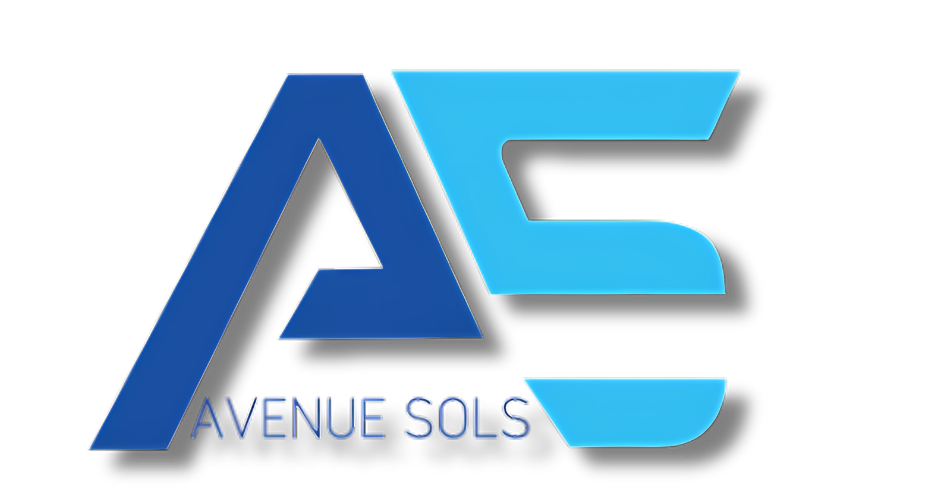
Is Flutter the Future of App Development?
In the fast-paced world of mobile apps, choosing the right development framework can make or break your project. With so many options out there, it’s no surprise developers are asking: is Flutter good for app development?
Short answer: it depends. Like any tool, Flutter has its strengths and weaknesses. But before we dive into the details, let’s take a step back and consider what you, the app builder, really care about.is flutter good for app development.
- is flutter good for app development
What matters most?
- Speed and efficiency: Time is money, and getting your app to market quickly can be a huge advantage.
- Cost-effectiveness: Development budgets are tight, so finding a framework that saves you resources is crucial.
- Quality and performance: Your app needs to be beautiful, smooth, and reliable across different devices.
- Flexibility and future-proofing: The tech landscape is ever-changing, so choosing a framework that can adapt is essential.
So, where does Flutter fit in?
Pros:
- Cross-platform development: Build stunning apps for both iOS and Android with a single codebase, saving time and money.
- Hot reload: See your code changes reflected instantly on the device, making development super fast and iterative.
- Beautiful UI: Flutter’s custom widgets give you complete control over the look and feel of your app, creating unique and engaging experiences.
- Open-source and supported: Google backs Flutter, so you can be confident in its future and rely on a vibrant community for support.
Cons:
- Relatively young framework: Compared to giants like native Android and iOS development, Flutter is still evolving. This means there might be fewer resources and libraries available, and some edge cases might be trickier.
- Larger app size: Flutter apps can be slightly larger than native ones, which could be a concern for users with limited data plans or older devices.
- Learning curve: If you’re new to mobile development, Flutter might have a steeper learning curve than some other frameworks.
The verdict?
Flutter is a powerful and promising framework with a lot to offer. If you’re looking for a way to build beautiful, high-performing apps quickly and cost-effectively, Flutter is definitely worth considering. However, it’s important to be aware of its limitations and weigh them against your specific needs and project requirements.
Ultimately, the best way to know if Flutter is right for you is to try it out! There are plenty of resources available online, including tutorials, documentation, and a supportive community. So, dive in, explore, and see if Flutter sparks your creativity and helps you build the app of your dreams.
Remember, there’s no one-size-fits-all solution in the world of app development. Choose the framework that best aligns with your goals, skills, and project vision. And who knows? Maybe Flutter will become your go-to tool for building the next generation of amazing apps!
P.S. Don’t forget to check out Avenue Sol’s Flutter expertise! We have a team of passionate developers ready to help you navigate the world of mobile app development, whether you choose Flutter or another framework.
is flutter good for app development
Start with a Bang:
- Open with a captivating story or scenario: Imagine a developer building a beautiful, cross-platform app in record time. Is that Flutter’s magic?
- Pose a thought-provoking question: “Native or cross-platform? That is the question…”
2. Paint the Landscape:
- Explain the app development landscape: Briefly introduce popular frameworks like native, hybrid, and cross-platform options.
- Highlight Flutter’s unique selling points: Emphasize its hot reload, expressive UI, and single codebase for multiple platforms.
3. Dive into the Pros & Cons:
- Present the advantages of Flutter: Speed, cost-effectiveness, flexibility, and future-proofing with Google’s backing.
- Acknowledge the challenges: Mention the younger framework, larger app size, and steeper learning curve for beginners.
4. Don’t Preach, Analyze:
- Offer balanced comparisons: Contrast Flutter with native development in terms of performance, access to native features, and development time.
- Provide real-world examples: Showcase successful Flutter apps across diverse industries to illustrate its potential.
5. Guide, Don’t Decide:
- Help readers assess their needs: Discuss factors like project size, budget, target audience, and technical expertise.
- Offer resources and next steps: Point them towards Flutter tutorials, communities, and professional development options.
6. Conclude with a Call to Action:
- Summarize the key takeaways: Reiterate Flutter’s strengths and its suitability for specific scenarios.
- Encourage exploration: Invite readers to try Flutter, join the community, or get in touch for professional help.
Remember:
- Maintain a neutral tone: Avoid definitive statements like “Flutter is the best” or “Flutter is not for everyone.”
- Focus on value: Provide insights and analysis that help readers make informed decisions.
- Keep it engaging: Use clear language, storytelling elements, and visuals to keep readers hooked.
- is flutter good for app development
Flutter for App Development: Exploring the Possibilities and Considerations
Whether you’re a seasoned developer or just starting out, choosing the right framework for your app is crucial. Flutter has emerged as a popular option, thanks to its cross-platform capabilities and rich features. But is it the perfect fit for every project?
This blog post delves into the world of Flutter for app development, exploring its potential and the key considerations:
The Allure of Flutter:
- Cross-platform magic: Write code once and deploy it on multiple platforms (Android, iOS, and more!), saving time and resources.
- Speed demon: Hot reload and other features can accelerate development, letting you see changes instantly.
- Visually stunning: Create beautiful and unique UIs with Flutter’s rich widgets and customization options.
- Open-source embrace: Join a supportive community and benefit from constant updates and improvements.
Beyond the Surface:
- Technical considerations: Explore potential limitations like larger app size or access to certain native features.
- Finding your Flutter fit: Consider your project’s needs, team expertise, and the available resources.
- The ever-evolving landscape: Stay updated on Flutter’s ongoing development and the maturing ecosystem.
Ultimately, the answer to “is Flutter good for app development?” is yours to discover. By weighing the pros and cons, you can make an informed decision that aligns with your specific goals and project requirements.

Here’s an advantage of Flutter for app development:
Rapid prototyping and iteration: Flutter’s “hot reload” feature lets you see changes you make to your code reflected in the app instantly, without having to rebuild or restart it. This makes it super fast to experiment with different ideas and iterate on your design, which can be a huge advantage when you’re trying to create the perfect app.
Imagine coming up with a cool new animation for your app. With Flutter, you can code it, hit “save,” and see it working right away. No more waiting for the app to compile or rebuild! This rapid feedback loop can help you quickly refine your ideas and build a better app overall.
This is just one of the many benefits of Flutter for app development. Of course, like any tool, it has its own set of pros and cons, so it’s important to do your research and decide if it’s the right choice for your project.
is flutter good for app development
Here are some resources that you might find helpful:
- Flutter website: https://flutter.dev/
- Flutter documentation: https://docs.flutter.dev/
- Flutter Awesome: https://github.com/nepaul/awesome-flutter
- is flutter good for app development
Flutter’s Learning Curve: A Potential Disadvantage
While Flutter offers plenty of advantages for app development, it’s important to consider its learning curve, which can be steeper compared to some other frameworks. Here’s why this might be considered a disadvantage:
1. New Framework: Flutter is a relatively young framework compared to established options like React Native or native development. This means the resources and learning materials available, while growing, might not be as abundant or comprehensive as with older options.
2. Different Approach: Flutter uses a unique concept called widgets to build user interfaces, which can differ significantly from other frameworks. While powerful, it can take time to adjust and master this new way of thinking about app development.
3. Community Growth: While the Flutter community is rapidly growing, it might not yet match the size and experience of more established frameworks. This can mean finding solutions to specific problems or getting troubleshooting help might take longer compared to other options.
4. Debugging Challenges: Debugging Flutter apps can be trickier for beginners due to its hot reload functionality. While hot reload is great for rapid development, it can sometimes mask underlying issues that become more apparent when building for production.
Remember: Learning any new skill takes time and effort. If you’re willing to invest in learning Flutter, its long-term benefits outweigh the initial challenges. But it’s fair to consider the steeper learning curve as a potential disadvantage, especially if you’re already familiar with other frameworks or are short on time.
is flutter good for app development
Flutter can be used to build a wide variety of apps, both simple and complex. Here are some examples:
Simple Apps:
- News apps: Display headlines, articles, and images with smooth scrolling and animations.
- To-do lists: Manage tasks, set reminders, and track progress with a user-friendly interface.
- Journaling apps: Write entries, add photos, and personalize your journaling experience.
- Quiz games: Create interactive quizzes with various question formats and engaging visuals.
- Calculator apps: Build basic or advanced calculators with intuitive touch controls.
Complex Apps:
- E-commerce apps: Design interactive product pages, browse categories, and manage shopping carts.
- Social media apps: Create user profiles, share content, and engage with friends and followers.
- Streaming apps: Build video or music streaming platforms with smooth playback and personalized recommendations.
- Travel apps: Book flights, hotels, and activities, plan itineraries, and explore destinations.
- Fitness apps: Track workouts, monitor health metrics, and provide personalized exercise plans.
Additionally:
- Flutter can be used to build prototypes of app ideas quickly and easily, allowing you to test them and get feedback before investing in full development.
- It’s also suitable for building cross-platform apps, meaning you can write once and deploy your app on both Android and iOS devices.
The possibilities are endless! Flutter’s versatility and powerful features make it a great choice for developers of all skill levels to build a wide range of engaging and impactful apps.
Here are some resources to learn more about Flutter:
- Flutter website: https://flutter.dev/
- Flutter documentation: https://docs.flutter.dev/
- Flutter Awesome: https://github.com/nepaul/awesome-flutter
is flutter good for app development
Choosing the right tool for app development depends on factors like your project requirements, skill level, and desired outcome. Here are some resources to help you compare Flutter with other options:
General resources:
- Flutter: https://flutter.dev/
- React Native: https://reactnative.dev/docs/environment-setup
- Native app development:
Articles comparing Flutter with other options:
- Flutter vs. React Native: https://medium.com/backenders-club/react-native-vs-flutter-which-is-better-for-your-project-in-2023-745a2c0c815e
- Flutter vs. Native App Development: https://leancode.co/technologies/flutter
- is flutter good for app development
Whether Flutter is good for app development depends on your goals and experience.
Here’s a breakdown to help you decide:
Pros:
- Fast development: Flutter’s hot reload feature lets you see changes instantly, saving time and making it easier to test ideas.
- Beautiful apps: Flutter has powerful tools for creating visually appealing and dynamic user interfaces.
- Cross-platform: Build apps for both Android and iOS with a single codebase, saving resources.
- Growing community: You can find plenty of support and resources from the active Flutter community.
Cons:
- Learning curve: Flutter is relatively new, so its unique approach to UI development can take time to get used to.
- Limited native features: Accessing certain native platform features can be trickier with Flutter.
- App size: Flutter apps can be slightly larger than some native apps.
- Job market: There are fewer experienced Flutter developers compared to established frameworks.
Ultimately, Flutter is a powerful and promising tool. Whether it’s “good” for you depends on:
- Your experience: If you’re new to coding, Flutter’s learning curve might be steeper.
- Your project: Flutter might be ideal for simple apps or prototypes, while complex projects might benefit from a more established framework.
- Your goals: If you prioritize rapid development and cross-platform capabilities, Flutter could be a good fit.
To decide:
- Research: Explore Flutter tutorials and resources to see if it aligns with your skills and interests.
- Compare: Check out other app development frameworks like React Native or native development to see which suits your needs.
- Try it out: The best way to know if you like Flutter is to take it for a spin! There are plenty of beginner-friendly tutorials available.
- is flutter good for app development
Flutter is a popular framework for building mobile apps. Whether it’s “good” for you depends on what you’re looking for in a development tool and your own experience level.
Here’s a quick rundown of the pros and cons to help you decide:
Pros:
- Fast development: Flutter’s “hot reload” feature lets you see changes you make to your code instantly, without having to rebuild the app. This can be a huge time saver and make it easier to experiment with different ideas.
- Beautiful apps: Flutter has powerful tools for creating visually appealing and dynamic user interfaces.
- Cross-platform: Build apps for both Android and iOS with a single codebase, saving time and resources.
- Growing community: The Flutter community is growing and active, so you can find plenty of resources and support.
Cons:
- Learning curve: Flutter is a relatively new framework, and its unique approach to UI development can take some time to get used to.
- Limited native features: Accessing certain native platform features can be challenging with Flutter.
- Larger app size: Flutter apps can be slightly larger than some native apps.
- Job market: The pool of experienced Flutter developers is smaller than some established frameworks.
Overall, Flutter is a powerful and promising framework with a lot to offer. However, it’s important to weigh the pros and cons carefully to decide if it’s the right choice for you.
Here are some resources that you might find helpful:
- Flutter website: https://flutter.dev/
- Flutter documentation: https://docs.flutter.dev/
- Flutter Awesome: https://github.com/Solido/awesome-flutter
- is flutter good for app development
Flutter is an open-source framework for building mobile apps. It’s known for its:
- Cross-platform development: You can write code once and deploy it to multiple platforms (e.g., Android, iOS).
- Fast development: Features like hot reload can speed up development times.
- Rich widgets: It comes with a variety of pre-built UI components.
- Customization: You can create unique and visually appealing apps.
Here are some resources where you can learn more about Flutter and its potential advantages and disadvantages:
- Flutter documentation: https://flutter.dev/docs: https://flutter.dev/docs
- Flutter app development pros and cons: <invalid URL removed>: <invalid URL removed>
- 8 Benefits and Advantages of Flutter for Cross-Platform Development: <invalid URL removed>: <invalid URL removed>
- is flutter good for app development
Whether Flutter is “good” for app development depends on your specific needs and priorities. Here are some potential disadvantages to consider:
Technical limitations:
- Limited third-party libraries: Compared to some native frameworks, Flutter has a smaller ecosystem of pre-built libraries and tools. This may mean more development work for certain features.
- Potential performance issues: While generally performant, Flutter apps can sometimes be larger in size than native apps. This could be a concern for users with limited storage or older devices.
- Native features: Accessing certain device-specific features might require using native code, which can add complexity to development.
Other considerations:
- Maturity: Flutter is a relatively young framework, and some aspects are still under development. This means there might be fewer resources and established best practices compared to older frameworks.
- Developer expertise: Finding developers experienced in Flutter might be more challenging than for some other frameworks.
- is flutter good for app development
Author



